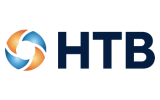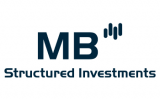Clubs & Associations Charity Accounts
Non-Personal Savings Accounts
Capital Protected Deposit Investments
What are Club & Association savings accounts?
A savings account is often a better way for club or association to earn interest on funds compared to current accounts which usually pay minimal or no interest.
They can range from instant access to accounts which have a notice or fixed savings period. Different charity accounts will offer terms on choice of access, minimum and maximum deposit balances and method of operation e.g. telephone, post, internet or through the branch.
Benefits of Savings Accounts
Charitable organisation trustees are obligated to do their best in getting good rates of interest on funds held. With many charity deposit accounts offering poor rates of interest trustees need to take a proactive approach in ensuring their savings provider is offering a good deal. Our research shows that many banks and building societies offer lower rates of interest on charity savings accounts compared to those offered in the individual retail space. Investing time in shopping around and comparing latest savings deals is time well spent. The difference between the lowest and highest charity savings accounts can be significant.
In looking at 51 UK bank and building societies offering instant access club and charity accounts based on a deposit of £100,000, interest rates ranged from 0.05% AER to 2.00% (Source: Moneyfacts June 2012). This is a difference of £1,950 in annual interest. What is also clear is that many of the well known high street banks who hold the bulk of charity savings money are offering interest rates at the lower end of the scale. If your charity is prepared to deposit money on a notice basis or fixed rate account basis then interest rates can be significantly more attractive generating higher returns. With a charity savings account the charity can benefit from interest being added either monthly, quarterly or annually depending on the Provider terms. Interest can often be paid to a nominated bank account. Typically the longer the charity can lock away money the better the interest rate that can be achieved.
Different Types of Charity Savings Accounts
Charity Instant Access Savings Accounts
No notice is required and funds can be obtained through the specified method of operation e.g. online transfer into the charity current account. With these accounts interest paid will be higher than charity current accounts but lower than charity notice accounts.
Charity Notice savings Accounts
The notice period on these accounts will typically range from 7 days to 180 days. Generally the higher the notice period needed to be given to the savings provider the higher the rate of interest offered.
Charity Fixed Rate Bond Savings Accounts
These are savings accounts for a fixed period of time where the interest offered is paid if you the charity is prepared to tie up money on deposit for a fixed term ranging anything from 6 months to 5 years. There are usually interest penalties if money is withdrawn early.
Other types of Charity Savings alternatives to Consider
Structured Deposit Plans
For trustees who are comfortable tying up capital from 3 to 6 years and are looking for returns that offer the potential of beating cash where the returns are based on stockmarket performance then structured deposit plans are worth a closer look. These plans are designed to be held for the full term and returns are usually not guaranteed.
With interest rates at the time of writing at an all-time low the impact in real terms of inflation on your money is not to be underestimated in eroding the buying power a charities cash on deposit. Our research shows that many charity savings accounts offer poor value and there can be significant differences on what interest is paid from one account provider to the next. Use our charity savings comparison tables to ensure you get a good savings rate.
What are fixed rate bonds?
With interest rates increasing due to base rate increases from the Bank of England, it can pay to shop around for the best fixed saving deal. For savers who are prepared to tie up capital for a year or more, typically higher rates of interest are available from savings providers.
A fixed rate bond is a way of gaining a fixed rate of higher interest on your savings for a fixed period of time, typically between one and five years. Generally speaking the longer your savings can be locked away, the higher the interest rate you can get on your money. Some providers offer fixed rate bonds within a Cash ISA, so you benefit from tax-free interest returns.
Providers normally have a minimum subscription age of 18, but some providers offer options to younger savers.
How Do Fixed Rate Bonds Work?
Having a fixed term means that bonds have a maturity date at which time you will be contacted by your savings provider and provided with options on how you wish your money to be returned to you – you may be given options of putting the money into a new account in which case you should always shop around before accepting a savings deal offered by an existing provider as the rate of interest may or may not be competitive.
Product providers do not normally allow you to access your money during the term and if they do there are normally conditions which may involve a loss of interest so ensure you read the small print before you sign up. Some fixed interest providers will allow one withdrawal a year without penalties.
Interest paid on your savings is treated as income and you may have to pay tax on it depending on your circumstances. If you don’t pay tax you can receive interest gross if you complete HMRC tax form R85. Some accounts will pay interest gross and it is up to you to declare any tax owed to the Inland Revenue.
Fixed rate bonds are cash deposit based and you will get back your original deposit plus any interest owed unless the bank or building society gets into serious financial difficulty. In the unlikely event that this happens the Financial Services Compensation Scheme would pay compensation of up to £85,000 per account holder per authorised institution.
What to consider when choosing a fixed rate bond
Minimum deposits can vary from £1 to £10,000. Make sure that you are happy to part with that amount of money for a longer period of time! It is worthwhile having a five-year plan of projected expenses – such as mortgages, car purchases, or planning for a family or retirement – to ensure that you will not need access to your fixed rate bonds account.
Withdrawals are either not permitted or restrictions will apply. Read the provider terms and conditions so that you know what you are getting into. Some providers for example will allow one withdrawal during the term without penalties.
The payment of interest can also vary- some offer monthly interest, others quarterly or annually, and some only pay at the end of the agreed term. Choose a product that fits in with your requirements for the best rates of high interest.
Tax is payable on interest accrued unless you are a non tax payer in which case you can receive interest gross if you complete HMRC tax form R85. Alternatively it is often possible to take a Cash ISA fixed rate bond (current cash ISA allowance for 2018/19 is £20,000 per individual) from which interest can be taken tax free.
If you have cash ISAs from previous tax years you may be able to transfer to a new Cash ISA provider offering a fixed rate bond cash ISA deal.
Please note that this information is based on current law and practice which may change at any time.
Top 10 tips for your 2023 fixed rate bond selection
2. Check the market – shop around to find the right savings plan for you. Interest rates change all the time, and deals come and go on a regular basis.
3. Make sure you find a product that works for you – The choice of bond is dependent on the amount of money you intend to deposit, the fixed rate, and the length of the fixed rate period. Whether you want the account to be operated on an online account basis, postal basis or telephone basis. These should all be taken into consideration before making your choice. Read the savings provider terms and conditions carefully.
4. Read the fine print – determine when the provider is likely to let you access your money, how much notice is required, and if there are any penalties for requesting access before the bond matures.
5. Some deals require you to have the interest paid into a current account – check the small print.
6. Check the small print on how interest is paid – If monthly or annually, this will need to be declared if you submit a tax return. If interest is paid on maturity, this may be useful for tax planning purposes.
7. Many deals require you to have internet access – Some are offered on a postal or branch basis – check the small print.
8. Check that your money is covered by the Financial Services Compensation Scheme – they will guarantee £85,000 of savings against institutional failure. Most UK banks should have this cover, but Irish banks that do not have a UK arm may not be covered by the FSCS.
9. Check what happens when your savings product matures – Providers will write to you when your account matures; if you do not respond, the provider will often put your savings into a low or no-interest holding account until you provide instructions on what you want to do with the money. It is therefore important to diarise the maturity of your bond and have in mind what you want to do with the money.
10. What is the tax treatment if you are a non-taxpayer – If you are not a taxpayer, many providers will pay interest gross on submission of the relevant HMRC tax form.
Savings Providers
- Abbey Fixed Rate Savings
- Abbey National Savings Accounts
- Abbey Savings
- Abbey Savings Accounts
- Access Bank Savings Accounts
- Alliance and Leicester Savings Accounts
- Anglo Irish Bank Savings Account
- ASDA Internet Savings Account
- Bank of Ireland Savings Accounts
- Bank of Scotland Savings Accounts
- Barclays Active Savings Account
- Barclays Savings Accounts
- Barnsley Building Society Savings Accounts
- Bath Building Society Savings Accounts
- Beverley Building Society Savings Accounts
- Birmingham Midshires Savings Accounts
- Bradford and Bingley Savings Accounts
- Britannia Building Society Savings Accounts
- Britannia Offshore Savings Accounts
- Cahoot Savings Account
- Cambridge Building Society Savings Accounts
- Capital One Fixed Rate Savings Bond
- Capital One Savings Accounts
- Catholic Building Society Savings Accounts
- Chelsea Building Society Savings Accounts
- Cheltenham and Gloucester Building Society Savings Accounts
- Cheshire Building Society Savings Accounts
- CitiBank Savings Account
- Clydesdale Bank Savings Accounts
- Co-operative Bank Savings Accounts
- Coventry Building Society Savings Accounts
- Cumberland Building Society Savings Accounts
- Darlington Building Society Savings Accounts
- Derbyshire Building Society Savings Accounts
- Direct Line Savings Accounts
- Dudley Building Society Savings Accounts
- Dunfermline Building Society Savings Accounts
- Egg Savings Accounts
- First Direct Savings Accounts
- FirstSave Savings Accounts
- Ford Money Savings Accounts
- Halifax Offshore Savings Accounts
- Halifax Regular Saver
- Halifax Savings Account
- Harpenden Building Society Savings Accounts
- HBOS Savings Accounts
- Hinkley and Rugby Building Society Savings Accounts
- HSBC Fixed Rate Savings
- HSBC Offshore Savings Accounts
- HSBC Savings Accounts
- ICICI Fixed Rate Savings Accounts
- ICICI Savings Accounts
- ING Direct Savings Accounts
- Intelligent Finance Savings Accounts
- Investec Bank Savings Accounts
- Investec High 5 Account
- Ipswich Building Society Savings Accounts
- Julian Hodge Bank Savings Accounts
- Kent Reliance Building Society Savings Accounts
- KRBS Fixed Rate Bonds
- Leeds Building Society Savings Accounts
- Leek United Building Society Savings Accounts
- Liverpool Victoria Savings Accounts
- Lloyds Savings Accounts
- Manchester Building Society Savings Accounts
- Mansfield Building Society Savings Accounts
- Marsden Building Society Savings Accounts
- Melton Mowbray Building Society Savings Accounts
- Metro Bank Savings Accounts
- Monmouthshire Building Society Savings Accounts
- National Counties Building Society Savings Accounts
- Natwest Offshore Savings Accounts
- Natwest Savings Accounts
- Newbury Building Society Savings Accounts
- Newcastle Building Society Savings Accounts
- Newcastle Savings Accounts
- Northern Bank Savings Accounts
- Northern Rock Savings Accounts
- Norwich and Peterborough Building Society Savings Accounts
- Norwich Union Savings Accounts
- Nottingham Building Society Savings Accounts
- Post Office Online Saver
- Post Office Savings Accounts
- Principality Building Society Savings Accounts
- Progressive Building Society Savings Accounts
- RBS Savings Accounts
- RCI Bank Savings Accounts
- Royal Bank of Scotland Savings Accounts
- Saffron Building Society Savings Accounts
- Saga Savings Accounts
- Sainsbury’s Bank Savings Account
- Sainsburys Internet Saver
- Sainsburys Savings Account
- Santander Offshore Savings Accounts
- Santander Savings Accounts
- Scarborough Building Society Savings Accounts
- Scottish Building Society Savings Accounts
- Scottish Widows Bank Savings Accounts
- Scottish Widows Instant Access Savings Account
- Shepshed Building Society Savings Accounts
- Skipton Building Society Savings Accounts
- Skipton Offshore Savings Accounts
- Smile Savings Account
- Stafford Railway Building Society Savings Accounts
- Standard Life Bank Savings Accounts
- Stroud and Swindon Savings Accounts
- Teachers Building Society Savings Accounts
- Tesco Savings Accounts
- Triodos Bank Savings Accounts
- Ulster Bank Savings Accounts
- Vanquis Bank Fixed Rate Savings Accounts
- Vanquis Bank Savings Accounts
- Vernon Building Society Savings Accounts
- Virgin Money Savings Accounts
- Wesleyan Bank Savings Accounts
- West Brom Savings
- West Bromwich Building Society Savings
- West Bromwich Building Society WebSave
- Yorkshire Building Society Internet Saver
- Yorkshire Building Society Savings Accounts
Popular Searches
- Best Childrens Savings Accounts
- Best High Interest Current Accounts
- Building Society Savings Accounts
- Business Savings Accounts
- Cash ISAs
- Charity Savings Accounts
- Child Savings Accounts
- Clubs and Associations Charity Accounts
- Compare Offshore Savings Accounts – Fair Investment Company
- Compare our Best Structured Deposit Plans – Fair Investment Company
- Fixed Rate Bonds
- Fixed Rate Savings Accounts
- Inflation Beating Savings Plans
- Instant Access Savings Accounts
- Internet Savings Accounts
- ISA Savings Accounts
- Monthly Interest Savings Accounts
- Monthly Interest Savings Accounts ISA
- Notice Accounts
- Offshore Savings Deposit Account
- Offshore Savings Guide
- Offshore Savings High Interest Accounts
- Offshore Savings Instant Access Accounts
- Pension Deposit Accounts
- Postal Savings Accounts
- Power Of Attorney Savings Accounts
- Savings Account Guides
- Savings Accounts For Over 50s
- Student Savings Accounts
- Telephone Savings Accounts
- Top ISA Deals
- Trustee Savings Accounts




